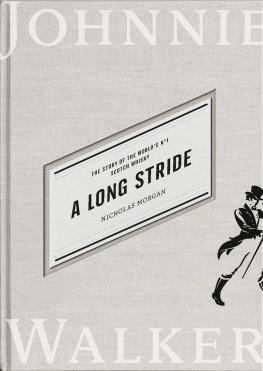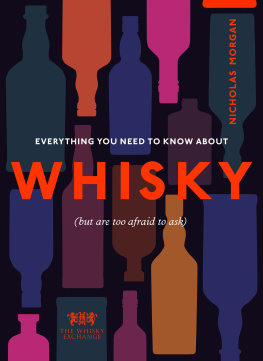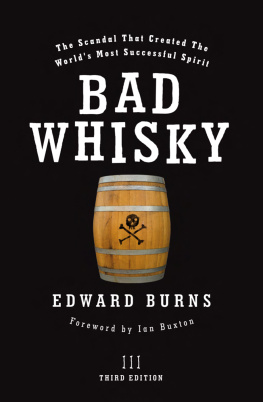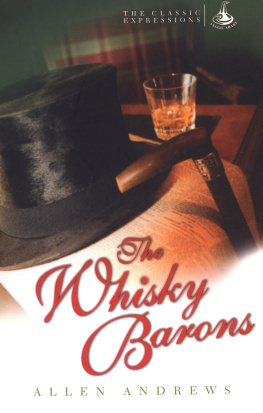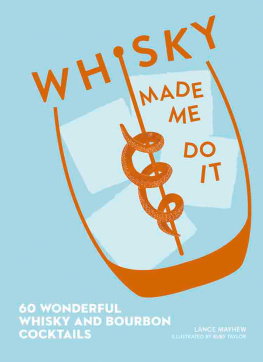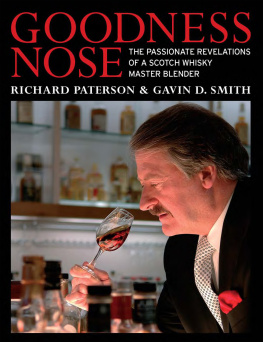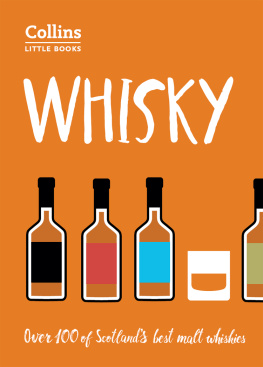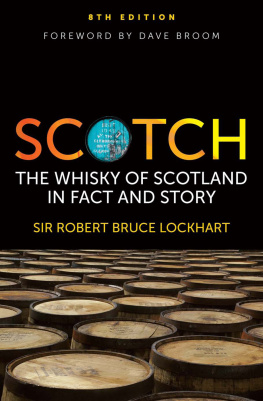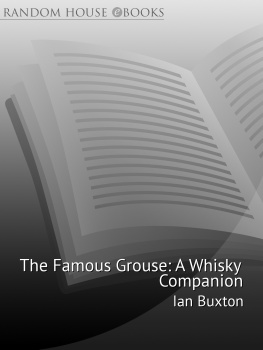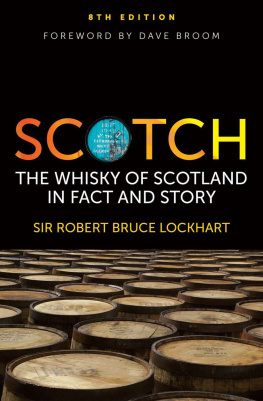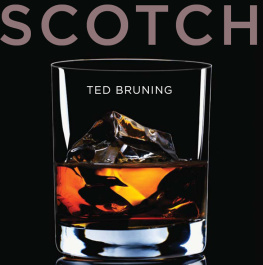First published in Great Britain, the USA and Canada in 2020 by Canongate Books Ltd, 14 High Street, Edinburgh EH1 1TE
Distributed in the USA by Publishers Group West and in Canada by Publishers Group Canada
canongate.co.uk
This digital edition first published in 2020 by Canongate Books
A LONG STRIDE copyright 2020 Diageo Brands BV
All rights reserved. No reproduction without permission
Text by Nicholas Morgan
This book contains occasional references to alcohol, the consumption of alcohol, medical endorsement and marketing, in an historical context that would no longer be acceptable today. Diageo is committed to responsible alcohol use, encouraging moderation and to reducing alcohol-related harm.
For further information please visit DrinkIQ.com
The right of Nicholas Morgan to be identified as the author of this work has been asserted by him in accordance with the Copyright, Designs and Patents Act 1988
British Library Cataloguing-in-Publication Data
A catalogue record for this book is available on
request from the British Library
ISBN 978-1-83885-207-8
eISBN 978-1-83885-208-5
PROLOGUE
In no other district in Scotland has the blending and bottling of whisky been brought to such perfection.

Tom Brownes cricketing cartoon, which first appeared as a full-colour poster in 1909
THIS BOOK TELLS THE STORY, seen through the lens of a single business, of how Scotch became Scotlands gift to the world, a gift that keeps on giving to a remarkable degree today. Its a story of two hundred years of relentless endeavour; of prosperity in the face of adversity: how a business not just survived the great flood of Kilmarnock in 1852, the early death of two generations of its business leaders, two world wars, penal tax regimes and Prohibition, and global and national depressions and recessions, but came back stronger each time. And its the story of how a brand of Scotch whisky became a national, no, an international institution, its fame based largely on a promise of the same quality the whole world over, an instantly recognisable square bottle with a slanting label, and an instantly recognisable man who walked all over the world.
The Scotch industry as we know it today is the result of the endeavours of a hugely talented group of men, mostly (but not entirely) Scots, in the late Victorian and Edwardian period. There has been a tendency to view the entrepreneurs who made Scotch such a global success as a collective, the whisky barons, with shared characteristics and values. As we shall see, the thrawn Walkers of Kilmarnock were very different from many of their counterparts, and these differences defined some of the core values of their business. It would be a considerable mistake to think of them in the same way as one might some of the whisky celebrities who sought out social advancement and political place to help build their personal reputations and those of their businesses. The Walkers eschewed publicity and self-promotion; when members of the Walker business were honoured by titles it was for exceptional service to the country in its deepest time of need.
With unbroken family management from its foundation to 1940, this is the story of three generations of quite remarkable Kilmarnock men who rose from obscurity to lead the world of whisky. And important though the family was, its also the story of the remarkable men who helped them, very often in the earlier years also men of Kilmarnock or its environs; after all, who else could you trust? Whisky is a remarkable drink and tends (in the authors experience) to attract, like moths to a flame, remarkable people into its seductive orbit. The story of the Walker business shows it was ever thus. Families, of course, come with their own particular advantages and problems, and even the odd rivalry. For the Walkers, family and its responsibilities certainly drove the need to acquire wealth far and above any desire for conspicuous consumption; and in the case of the Walker business the family, not just those active in its management, held some sway over its destiny as a result of shareholdings very deliberately split equally between siblings regardless of gender. Four men from the third generation of the family, Jack, George, Alex and Thomas, worked in the family firm. Business historians like to talk about second, or third, generational entrepreneurial decline as if it was some obligation or duty of the children of the successful to be as talented as their forebears, but who can blame their youngest brother, James Borland Walker, after a war in Africa and a war in Europe, for taking the money and living a comfortable life as a horse-breeder? Families also love their lore and legend, and there is no doubt that he who lives longest lives to tell the tale. Such was certainly the case with Sir Alexander Walker, whose often repeated (and occasionally wonderfully inconsistent) recollections of the past came to be one of the main sources for future copywriters and publicists interested in the history of the brand.
At its simplest (and no one said Scotch whisky should be complicated), Scotland principally makes three kinds of whisky. The production of the first kind, single malt Scotch whisky, is a conversion process as starches from malted barley are converted into sugar in the mashing process, the sugars converted to alcohol by the addition of yeast during the fermentation stage, and the weak beer that results distilled (normally twice) in copper pot stills to produce a spirit of around 70% alcohol by volume (abv). This basic conversion process is the same for the production of the second kind, single grain Scotch whisky, except it is made from a mixture of malted barley and other cereals (normally wheat or maize), on a much larger scale than most malt whiskies, and in a continuous (rather than a batch) process using Coffey or patent stills rather than pot stills. The production of a single malt or a single grain Scotch whisky must take place at a single distillery. Once distilled, the spirit must, by law, be matured in Scotland in oak casks for at least three years before it can be called whisky. The third kind of whisky is blended Scotch whisky, the product of mixing together single malt and single grain Scotch whisky. Around the world today about 90 per cent of all the whisky thats sold is blended; the remainder mostly single malt. Almost all of the single grain Scotch whisky that is made is used in the production of blends. Originally crude mixtures of two or three different single malt and single grain Scotch whiskies, blended Scotch whiskies today are often made from over thirty different individual whiskies, each brand closely guarding the secrets of its particular recipe. If a whisky carries an age statement on its label, then that must apply to the youngest whisky in the blend. The worlds largest-selling blended Scotch whisky variant is Johnnie Walker Red Label.
The origins of distilling in Scotland are obscure. Or, as Aeneas MacDonald wrote in 1930, The origin of whisky is, as it ought to be, hidden in the clouds of mystery that veil the youth of human race.
And as befits a book concerned with the history of whisky in the nineteenth, twentieth and twenty-first centuries, when Scotch had been dragged kicking and screaming from illicit bothies in sequestered glens and licensed Lowland distilleries in the commercial heart of Scotland onto a world stage, thats as far as we need to concern ourselves with the olden days. Suffice to say that when John Walkers business commenced, production of single malt Scotch whisky was fragmented, pre-industrial, often illegal, and the quality of the product at best variable, often undrinkable without the addition of amelioratives. Single grain Scotch whisky, produced in highly capitalised but still technologically crude distilleries (the Coffey or patent still did not come into use until the 1830s), was sold raw and hot from the still for local consumption, and much was exported to London to be rectified as gin or as whisky, when it was known as Scotch blue beer. Scotch whisky was little known or appreciated outside of its locales. No one had really thought of blended Scotch whisky

